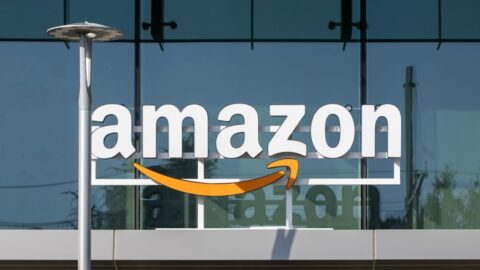Although it has been operating in the country since 2004, Amazon plans to shut down its Chinese marketplace business in July. The retail giant is shifting its focus to offering mainland Chinese consumers overseas products rather than goods from local sellers. Amazon’s move represents a harsh reality for U.S. retail businesses, revealing just how difficult it can be for retailers — even those with seemingly unlimited resources — to succeed in China, especially against local competition.
Starting on July 18, customers logging in to Amazon’s Chinese web site, Amazon.cn, will only see a selection of goods from its global store rather than products from third-party sellers.Amazon will keep running its other businesses in China, including AWS, Kindle E-books and cross-border operations that help ship goods from Chinese merchants to customers abroad. The cross-border focus appears to be more in line with consumer trends in the area: nearly 24% of China’s digital shoppers will make a cross-border purchase this year, according to eMarketer.
Amazon launched Prime in China in 2016 with promises of high-quality Western goods and perks including free international deliveries. Prime Video, which has been used to attract customers in other markets, isn’t available to users in China.
The most likely reason for the company’s exit is its China-based competition. Alibaba, JD.com and other Chinese platforms such as Pinduoduo and VIPshop have ramped up their offerings to provide more products and experiences that continue to bridge the online-offline gap.
In an interview with Retail TouchPoints, Natalie Berg, co-author of the new book Amazon: How The World’s Most Relentless Retailer Will Continue to Revolutionize Commerce, specifically highlighted how Alibaba and JD.com are well ahead of Amazon when it comes to certain areas of retail, namely brick-and-mortar’s integration with online shopping.
“These Chinese retailers are building a supermarket from scratch [Hema, now known as Freshippo] designed to cater to the needs of the 21st-century shopper, including stripping out checkout and delivering to customers within 30 minutes if they live within three kilometers of the store,” Berg said.
In 2018, Alibaba and its subsidiaries were No. 1 in Chinese e-Commerce sales, with a 58.2% market share, according to data from eMarketer. JD.com placed second with 16.3%, while Amazon China was a distant seventh place, with a paltry 0.7% share.
The head of Amazon China, Elaine Chang, will remain with the company in a different role.
The marketplace shutdown may be part of Amazon’s efforts to pivot its Asian focus from China to India, an emerging e-Commerce market with the potential for enormous growth.The country’s online market, an estimated $32.7 billion as of 2018, is projected to grow to $200 billion within 10 years, according to Morgan Stanley.
Amazon pledged $5 billion in operational investment in India in 2014 and recently launched a Hindi version of its mobile web site and app for Android devices as well as building more than 50 warehouses to support its business there. After losing a bidding war with Walmart to acquire India’s largest e-Commerce company, Flipkart, Amazon and private equity firm Samara Capital acquired More, an Indian supermarket and hypermarket chain, for $580.35 million in September 2018.












